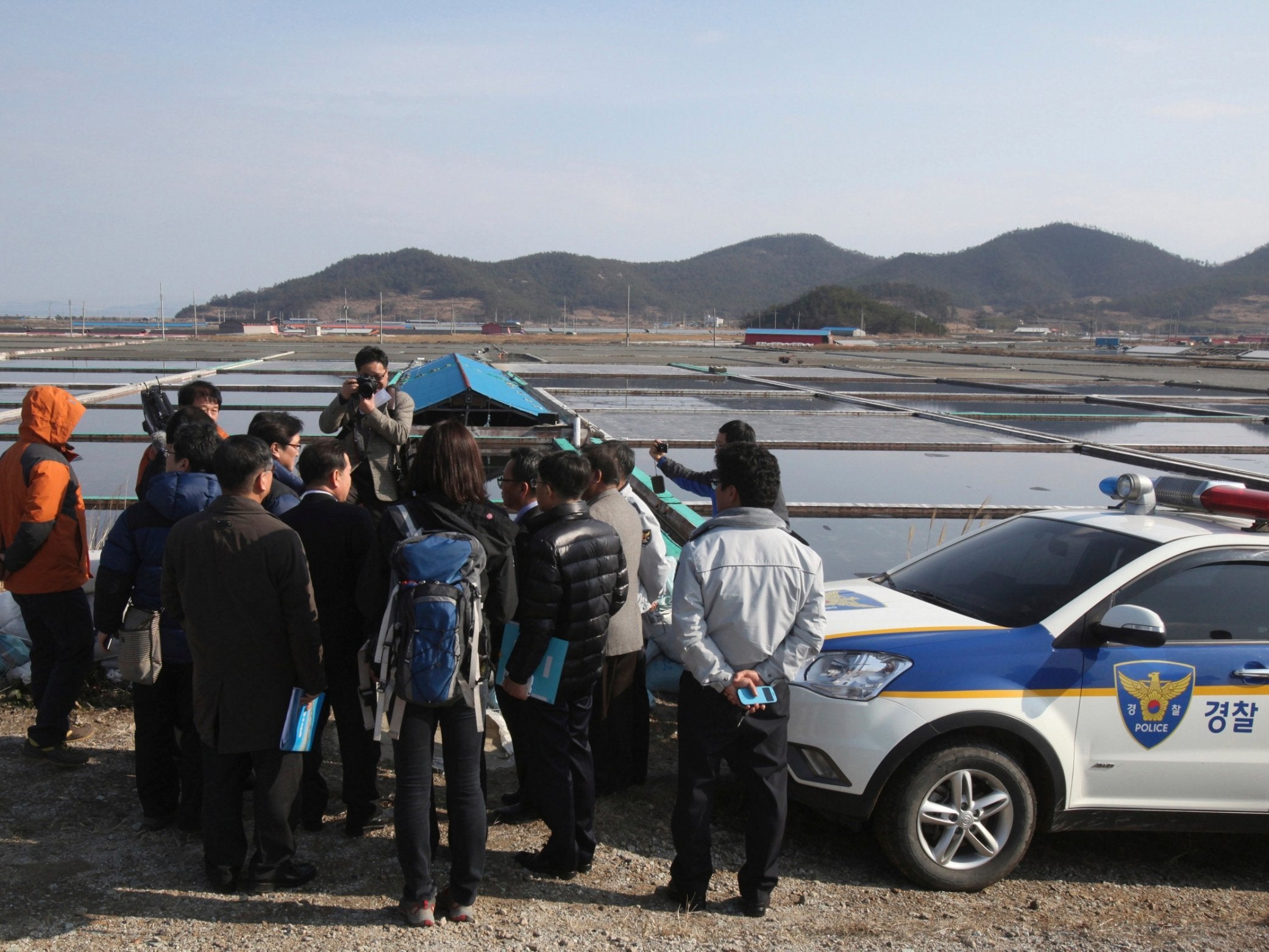Slaves forced to work on South Korea salt farm must receive compensation, court rules
More than 60 men including many with intellectual disabilities rescued from Sinui islands following police investigation in 2014

Your support helps us to tell the story
From reproductive rights to climate change to Big Tech, The Independent is on the ground when the story is developing. Whether it's investigating the financials of Elon Musk's pro-Trump PAC or producing our latest documentary, 'The A Word', which shines a light on the American women fighting for reproductive rights, we know how important it is to parse out the facts from the messaging.
At such a critical moment in US history, we need reporters on the ground. Your donation allows us to keep sending journalists to speak to both sides of the story.
The Independent is trusted by Americans across the entire political spectrum. And unlike many other quality news outlets, we choose not to lock Americans out of our reporting and analysis with paywalls. We believe quality journalism should be available to everyone, paid for by those who can afford it.
Your support makes all the difference.The South Korean government must pay 80 million won (£55,000) to three men who were enslaved on salt farms in remote islands off the country's southwest coast for several years, a court ruled on Friday.
The Seoul High Court said the government was responsible for their ordeals because local officials and police failed to properly monitor their living and working conditions.
The court said the government should pay 30 million won (£20,600) each to two of the men and 20 million won (£13,800) to the third plaintiff.
More than 60 slaves, most of them with intellectual disabilities, were rescued from the islands following an investigation led by mainland police in 2014.
Dozens of farm owners and job brokers were indicted, but no police or officials were punished despite allegations some knew about the slavery.
Eight former slaves sued the government last year, seeking a combined 240 million won (£165,100) in damages.
But the Seoul Central District Court awarded compensation to only one of them in September last year, saying that the government's responsibility was unclear in the other seven cases. Three of the plaintiffs who were rejected appealed to the high court.
Lawsuits against the government in human rights cases are rarely successful in South Korea because the burden of proof in non-criminal cases is entirely on the plaintiffs, who often lack information or resources.
The plaintiffs' lawyers had submitted to the high court written testimonies by the islands' administrative and police officials who admitted to knowing that the plaintiffs were working against their will although they did not act to protect them.
Most of the salt farm slaves rescued in 2014 had been lured to the islands by job brokers hired by salt farm owners, who would beat them into long hours of backbreaking labour and confine them at their houses for years while providing little or no pay.
The slavery was revealed when two police officers from Seoul came to the island of Sinui disguised as tourists and pulled off a clandestine operation to rescue one of the slaves who had been reported by his family as missing.
One of the Seoul police officers who rescued the man told the Associated Press they went undercover because of concerns about collaborative ties between the island's police and salt farm owners. That man did not appeal after his compensation was rejected last year, according to lawyers.
AP
Join our commenting forum
Join thought-provoking conversations, follow other Independent readers and see their replies
Comments